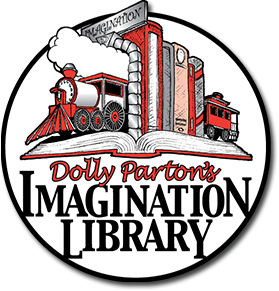
United Way NSV Helps Kids Achieve Their Potential
Education is a cornerstone for success in school, work and life. It also benefits the whole community: high school graduates have higher earning potential, contribute more to their local economies, are more engaged in their communities, and are more likely to raise kids who also graduate on time.
We’re fighting to shift the odds so tomorrow’s leaders can build a better foundation today. With an approach to education that spans from cradle to career, we’re ensuring every child gets a strong start in life, teenagers have the tools to learn and grow, and young adults thrive in the job market.
2020-2023 Community Needs Assessment Strategic Priorities
Our strategic priorities are meant to set a roadmap for the community, our partner agencies, and other strategic partners. At the same time, we pride ourselves on the ability to meet immediate and emerging needs in the community and reserve the right to change, amend or add strategic priorities should the needs of the community change. No one can predict with certainty how the COVID-19 pandemic will impact the needs of the community and we are committed to adjusting our strategic priorities should we need to in order to address ongoing and potentially unforeseen needs.
The 2020-2023 UWNSV Community Needs Assessment, released in July of 2020, identified the following as United Way NSV priorities through 2023.
Community Impact
Key Findings from our 2020-2023 Community Needs Assessment Include:
- Page County is classified as a Childcare Desert
- It’s estimated that there are 14,138 children under the age of 5 in our communities and only an estimated 6,923 childcare spots available for them.
- The average cost of infant childcare is $14,063 per year (an increase of $3,605 from 2016, 34.4% increase), or $1,172 per month (an increase of $300 from 2016); childcare for a 4 year old costs $10,867 per year (an increase of $2,910 from 2016, 36.5% increase), or $663 per month (an increase of $243).
- Virginia is ranked 10th out of 50 States and the District of Columbia for the most expensive childcare.
- For a median-income family, childcare costs account for 18.2% of their income (this compares to 13.7% as of the 2016 study).
- For a minimum-wage family, childcare costs could be upwards of 93.3% of their income (this compares to 69.4% as of the 2016 study).
- The percentage of children living in poverty decreased across all geographies when compared to 2015 percentages. Page County and the City of Winchester still had higher percentages of childhood poverty than the state average of Virginia which is at 14%.
- All jurisdictions saw an increase in children enrolled in Free/Reduced Lunch Programs when comparing 2016-2017 data to 2018-2019 data.
- 85% of children in single headed female households are considered below the ALICE® threshold or in poverty compared to 70% in single headed male households and 27% with two parents in the household.
- Children living below 200% of the poverty level are economically disadvantaged and live in families that struggle to meet basic needs such as, food, housing, utilities, childcare and transportation. Two out of every five children in the Northern Shenandoah Valley classify as economically disadvantaged.
- Consistent with demographic trends the number of English Learners in K-12 public schools increased in every jurisdiction, with the exception of Page County where it stayed the same.
- One out of every 10 people in the City of Winchester say they speak English “less than very well.”
- In comparison to school divisions from around the state of Virginia, the City of Winchester ranks as having the 7th highest percentage of Limited English Proficient students.
- The City of Winchester has approximately 37.6% of their Hispanic population that do not speak English. Clarke County shows a higher percentage (40.5%) of the Asian population that do not speak English.
- Clarke County, Page County, Shenandoah County, and Warren County saw an increase in on-time graduation rates when comparing 2016 to 2018. Frederick County and Winchester City were the only jurisdictions to see a slight decrease.
- All jurisdictions (with the exception of Winchester City) had higher on-time graduation rates than the Virginia average of 91.6%.
- When it came to students with disabilities, most jurisdictions saw similar on-time graduation rates when compared to all students.
- Economically disadvantaged students saw a much lower on-time graduation rate than students in all the jurisdictions.
- For the jurisdictions that provided data, English learners had even lower on-time graduation rates, with the lowest on-time graduation rates seen by students in the homeless population.
- Clarke County, Frederick County, Page County, Shenandoah County and Warren County all saw an increase in the percentage of students with disabilities. The City of Winchester was the only jurisdiction to see a decrease.
- All jurisdictions saw a decrease in postsecondary participation.
- In general, in all the jurisdictions, there are just as many students who in enroll in two-year institutions as four-year public institutions.
- Page County has the highest percentage of high school students who do not receive a diploma. Frederick County and Clarke County have the smallest percentage of high school students who do not receive a diploma. Page, Shenandoah, Warren and Winchester City all had percentages higher than the US and Virginia averages.
We recognize that funding alone cannot alone solve deeply rooted community problems. Our strategy at United Way NSV is to provide funding to innovative programs that support community-wide goals, but to not stop there by going above and beyond to advocate for community change, convene community leaders around community issues and educate businesses, community leaders and the public at large about how to best support an effort for positive community change.
Our comprehensive impact strategy includes:
- FUNDING: Funding innovative programs that support community-wide goals
- ADVOCACY: Advocating for the voiceless to ensure policy and program improvement
- CONVENING: Collaborating with those who have the passion, expertise and resources to drive change
- EDUCATING: Educating businesses, community leaders and the public on critical local issues
 Research shows that children who enter school ready to learn are more likely to achieve early reading proficiency by third grade, and consequently more likely to graduate high school on time.
Research shows that children who enter school ready to learn are more likely to achieve early reading proficiency by third grade, and consequently more likely to graduate high school on time.
Those benefits stack up over time: students who graduate high school are more likely to find a job that pays a livable wage, live healthier lives, stay out of the justice system and have children who also graduate high school on time.
Early learning and literacy is a large component of that and getting books into the hands of children at a young age is what Dolly Parton Imagination Library is all about.
United Way NSV serves as the fiscal agent for the Dolly Parton Imagination Library program in Page County, VA.
To learn more about Dolly Parton Imagination Library, click here.
2020-2021 Impact Grant Recipients:
See see a list of funded agencies and a summary of their grant purposes click here.
2020-2023 Strategic Priorities
Goal: Children have access to basic needs
Strategic Priorities:
- Provide basic needs support to children and families in crisis. (F)
- Help children who face neglect or abuse. (F)
- Promote positive parenting and healthy child development. (F, A)
Goal: Preschool aged children have access to affordable, high quality, early learning programs that prepare them for kindergarten.
Strategic Priorities:
- Provide tuition assistance for families unable to afford a quality preschool education. (F, A, E)
- Promote high quality learning programs that prepare children for kindergarten. (F, A)
Goal: Students have access to high quality, enriching out of school programs where students have support and encouragement from engaged parents, advocates and mentors.
Strategic Priorities:
- Increase the availability of quality before and after-school care for school-aged children and youth. (F, A, C)
- Ensure access to age-appropriate mentors and other academic supports. (F)
